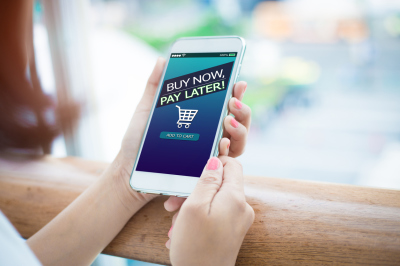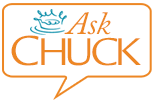Dear Chuck,
My young adult children and their spouses all use these Afterpay plans as if it’s no big deal. I try to warn them, but they think I am old-fashioned and need to catch up with modern conveniences. What do you think about this new form of borrowing?
Concerned About “Buy Now, Pay Later” Plans

Dear Concerned About “Buy Now, Pay Later” Plans,
Times have changed. When I grew up, we had an option called “Layaway.” The retail store would allow you to set aside an item for purchase to be kept in the warehouse until you made three or four equal payments, usually without interest! Notice that the store kept the merchandise until payment was made in full.
Now we have PayPal, Klarna, Affirm, and Afterpay, the most common “Buy Now Pay Later” (BNPL) lenders, which allow the consumer to take the goods home before they are paid for. The plans are popular, even though users report the following problems:
- Spending more than they can afford.
- Complicated, multiple payment dates.
- Missing payment deadlines.
- Late or bounced payment fees.
- Regretting their purchases.
- Trouble with returns or refunds.
- Hacked accounts.
- Incorrectly credited payments.
The appeal is broad
Bankrate conducted a BNPL survey and found that the appeal for this type of financing was far-reaching. Usage is nearly consistent across all income levels. Almost one-third of Americans have used it for at least one purchase. The appeal includes:
- Smaller payments to stretch cash flow.
- Low or no interest rate.
- Payment predictability.
- Ease of obtaining credit.
Eat now, pay later
In March, Klarna and DoorDash announced a partnership. Now, customers can “eat now, pay later.” Customers can choose to pay in full, in four equal interest-free installments, or at a time that aligns with their paycheck. David Sykes, chief commercial officer of Klarna, said: “Our partnership with DoorDash marks an important milestone in Klarna’s expansion into everyday spending categories. By offering smart, more flexible payment solutions for groceries, takeout, and retail essentials, we’re making convenience even more accessible for millions of Americans.”
That “convenience” comes at a price! Imagine how much more “convenient” it is to pay cash, avoid interest charges, and be done with it.
Enjoy now, suffer later
Despite the benefits when used responsibly, some people are struggling to repay their loans. As a result, lenders are experiencing a growing number of late payers. Terms have changed since inception. Four interest-free payments have stretched into plans as long as 48 months with interest as high as 36%, depending on the provider, merchant, credit score, and other factors. Reading and understanding the details before use is crucial, but most never do.
A February article at Bankrate noted three troublesome trends among BNPL borrowers:
- They are more likely to have higher debt balances on other accounts.
- Many are repeat borrowers.
- A majority do not have good credit.
NBC News reports: “The debt strain among BNPL customers coincides with broader signs of stretched household finances.” Klarna, a Swedish company, saw net losses double in the first quarter despite a growing revenue and user base. It paused plans to go public due to economic uncertainty.
According to a recent report by Lending Tree:
- An increasing number of BNPL users pay late.
- 23% say they have carried three or more BNPL loans at one time.
- More users buy groceries with BNPL and more consider it for food delivery and takeout.
- An increasing number of people use it to bridge paychecks — primarily high earners, men, younger Americans, and parents of young children.
- 62% incorrectly believe that on-time payments improve credit scores — men, high-income earners, and a majority of boomers believe this falsehood.
Why I recommend avoiding BNPL plans
Job loss, medical bills, the high cost of homes and mortgages, student loans, and the cost of living in general have impacted many. Too often, the vulnerable or uninformed about the real risks fall into BNPL traps. It starts off easy, but reliance can create growing debt loads and be difficult to repay, especially when several things hit at once. My advice is to lovingly suggest they learn how to live frugally and be content with what they have to avoid the need to use these programs. Paying cash is very convenient! Regardless of the amount or terms borrowed, this proverb stands as a dire warning:
“The rich rule over the poor, and the borrower is slave to the lender” (Proverbs 22:7 ESV).
Contentment outweighs debt
Here are some solutions to debt dependence:
- Avoid going where you are tempted to spend more than you can afford.
- Consider whether your peer group causes you to spend too much and why.
- Learn to differentiate needs from wants.
- Exercise patience; delay gratification.
- Save for purchases by planning ahead for birthdays, Christmas, etc.
- Fund an emergency account.
- Strategically pay off debt:
- Get on a budget.
- Increase income, and/or decrease expenses.
- Apply excess cash to debt.
- Use the snowball or avalanche payback methods.
BNPL can be a helpful way to finance a large, needed item in a pinch, when the borrower is very disciplined and little or no interest is charged. However, credit cards are a better option for those who can pay in full because they offer rewards and are a quick way to improve one’s credit score. Here is some additional recommended reading: The BNPL Phenomenon.
Consider connecting your young adult children with a Crown budget coach to help them avoid the desire to use BNPL. A budget coach can work with them to develop a customized spending plan and debt-elimination strategy.
Chuck Bentley is CEO of Crown Financial Ministries, a global Christian ministry, founded by the late Larry Burkett. He is the host of a daily radio broadcast, My MoneyLife, featured on more than 1,000 Christian Music and Talk stations in the U.S., and author of his most recent book, Economic Evidence for God?. Be sure to follow Crown on Facebook.



















